During my studies/research on climate and environmental topics from a wide variety of angles since several years back, I have noticed how much progress has been made around the world in terms of environmental protection, and concrete climate action.
With climate change deniers, resistants, apathetic individuals and those who talk the talk without actually walking their talk, our world has plenty of individuals who actually are fully dedicated in their everyday lives to tackling both climate change and environmental destruction. These individuals take action in their personal lives, create businesses and contribute to/make significant political decisions in terms of protecting our local/global environment without which things could look much worse than they actually are today.
In terms of communicating climate and environment-related topics local and global journalism/media play a significant role; how else would the crowd be informed about any development that is taking place? Well-informed citizens of any country, or people who dig deep into specific topics out of personal or business interest of course know how to search for information through a wide variety of sources, which today is even more simple than ever thanks to the Internet and people around the world having public access to information and reports, many times for free.
Nevertheless, and despite important political decisions and legislative changes in terms of environmental protection, journalism and media have a huge responsibility and lots of power when it comes to bringing public awareness about specific issues, climate change and environmental protection. Anthropogenic climate change and environmental protection are both no new topics.
Those with longer life experience and more years behind them know that specific climate/environmental issues have been discussed for several decades. In recent years, however, there has been a significant increase in climate change and environmental topics brought up by various media outlets. Since the Paris Agreement was signed on April 22nd 2016, most countries on our planet have actually pledged to concrete climate action; some countries with more ambition than others.
The main goal of the Paris Agreement is for all countries that have signed (and ratified) the agreement to take concrete actions in order to stop global warming and to prevent global average temperatures from rising above 1,5 degrees Celsius (34,7 Fahrenheit), since research indicates that even slight increases in global (or regional) average temperatures can and will lead to drastic changes worldwide in terms of for instance food security. The purpose of the Paris Agreement is also to ensure that countries take all possible action to reduce GHG ́s (greenhouse gas emissions), which are found to be increasing the global average temperatures through the warming effect that these create.
The question is, however: Do We Take Climate Action Fast Enough?
In the global energy sector, renewable energy sources (excluding nuclear energy), today account for 25,6 % of the total global energy sector, a vast majority of which comes from hydropower (15,9 %). (IHA 2019). Despite the growing capacity of renewable energy sources worldwide in recent years, energy-heavy sectors such as cooling, heating and transport lag behind and renewable energy sources such as solar and wind today account for 2,1 % respectively 4,6 % of total global energy. (IHA 2019; REN21 2018).
Climate marches and school strikes on behalf of climate action and environmental protection that gather millions of people together around the world of course bring an important message and put increasingly much pressure on both educational institutions and schools, businesses in all industries, and governments/politicians, but the focal point here is to focus upon concrete action, which can be taken on various levels throughout societies: in our personal lives, in businesses, and in terms of legislation.
It is comforting to notice that despite of certain climate change resistance or complete ignorance even among world leaders, major cities around the world and in countries such as the U.S. are committed to taking action and concrete measures to either eliminate or reduce their carbon emissions, including for instance New York, Los Angeles and Chicago. Furthermore, research and reports published by IRENA and OPEC reveal how even traditional oil-drilling/oil-producing regions invest into renewable energy sources such as solar and wind.
Nevertheless, with a rapid population growth globally and a continuous increase in energy consumption worldwide, environmentally more sustainable solutions are much needed to keep up with the current development in order to meet the demands of the Paris Agreement which aims not only to protect, but in fact to save our planet Earth from complete destruction.
Anne-Maria Yritys 13.5.2019

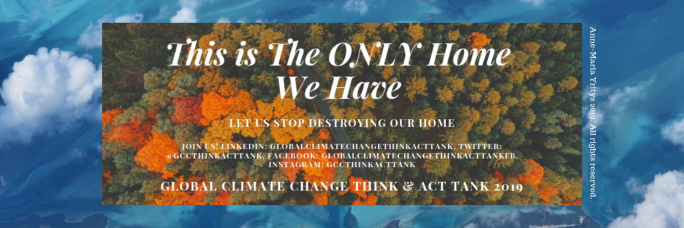
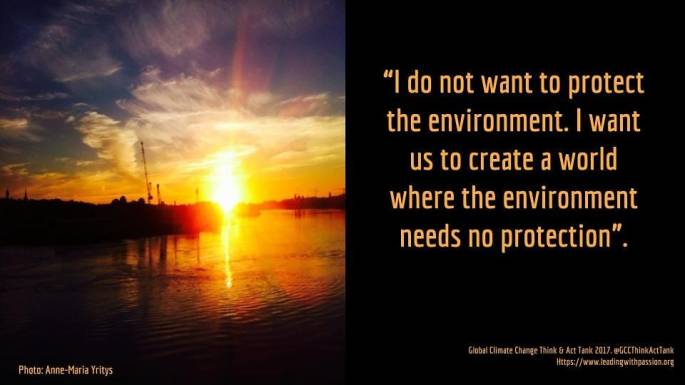
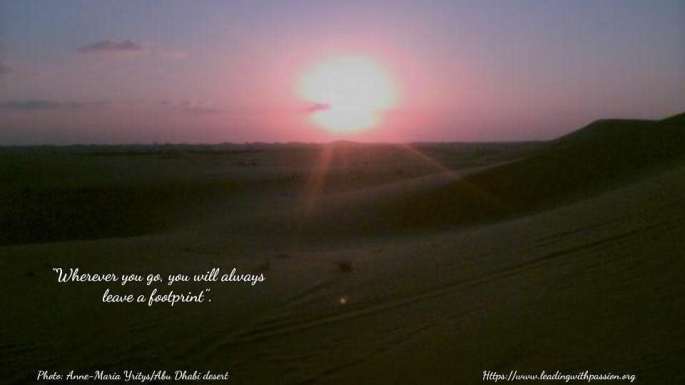
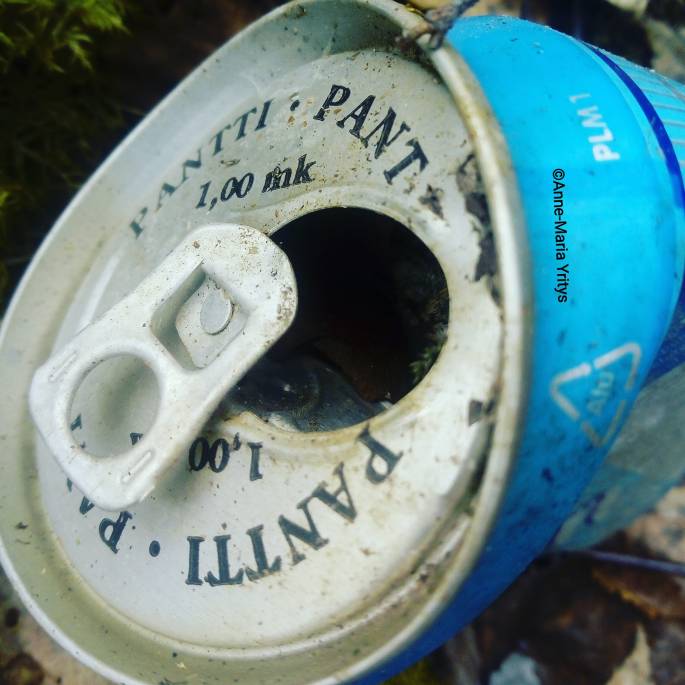
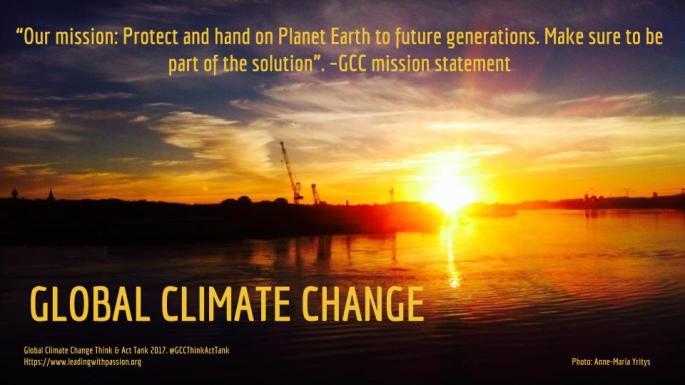

You must be logged in to post a comment.